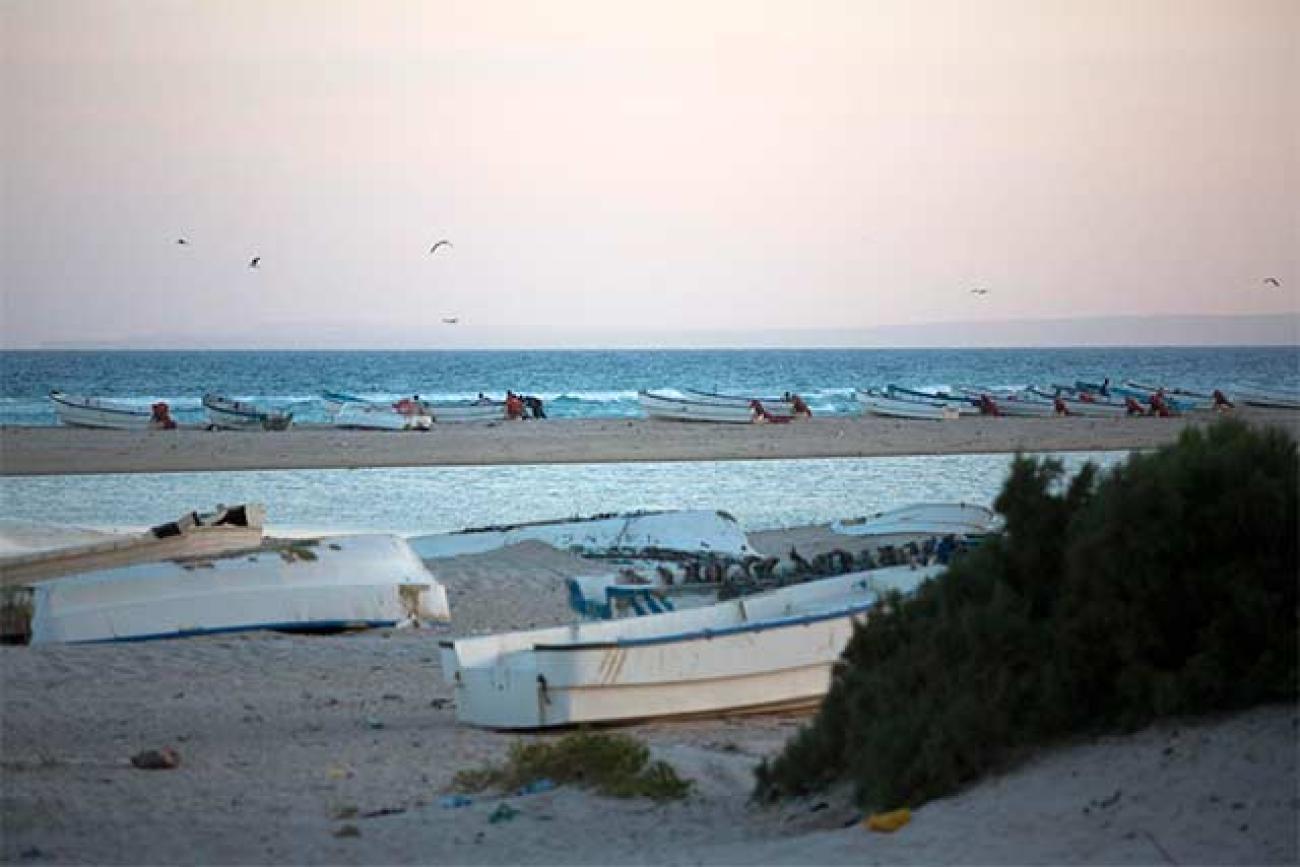FAO supports Somalia in signing landmark foreign fishing licence agreement

The Federal Republic of Somalia has begun issuing fishing licences to foreign vessels for the first time in over 20 years.
The Federal Republic of Somalia has begun issuing fishing licences to foreign vessels for the first time in over 20 years. Under a Memorandum of Understanding signed with the China Fisheries Association, 31 licences have been issued to Chinese long-line fishing vessels to operate in the Somali Exclusive Economic Zone (EEZ). At a time when revenue generation is at the top of Somali’s political and economic agenda, the fishing sector is leading the way, demonstrating that collaboration between the Federal Government of Somalia and the Federal Member States to meet Chinese demand for fish can bring about significant benefits.
The Government of Somalia, FAO, the Italian Agency for Development Cooperation, the World Bank and other partners have been working towards an agreement on tuna fishing revenue since 2013, providing support through technical assistance and funding. The agreement targets tuna and tuna-like species in the country’s EEZ. The first licences were issued following a transparent approach with information and data available to everybody through an updated website and in a spirit of open collaboration between the Somali authorities at federal and state levels.
While the issuance of fishing licences puts Somalia firmly on the map as an active and responsible fishing nation, the hard work starts now with the monitoring of licensed fishing vessels. Furthermore, Somalia needs to work with international partners and domestic stakeholders to keep these vessels safe while they fish in Somali waters. Sustainability is crucial too, and licences will only be issued within fisheries where there are no concerns of over exploitation. Sustainability also forms an integral part of the fight against illegal fishing; as the country benefits from the revenue generated by legal and licensed fishing, the value of these natural resources and the benefits gained from protecting them will be increasingly appreciated.
A further challenge comes with the institutionalization of this process and the use of the revenue generated. While there is a lot to do offshore with regards to tuna fisheries, further development will also include the inshore fisheries sector, which provides food security and income for many isolated communities on the Somali coast. To this end, FAO stands ready to support the Somali Ministry of Fisheries and Marine Resources with technical assistance and other means of support as appropriate.
Link to original story





